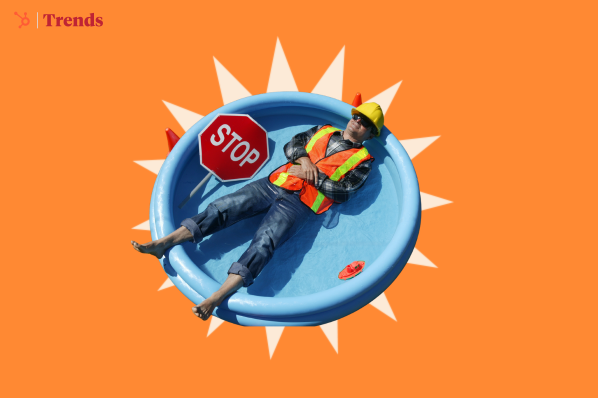For the Northern Hemisphere, 2023 had the hottest summer“since the height of the Roman Empire.”
But then summer ‘24 rolled around… and this one feels even hotter.
While we all love a bit of pool weather, extreme heat is no fun — it’s actually the No. 1 weather-related cause of death in the US. Most years it kills more people than hurricanes, floods and tornadoes combined.

Source: US EPA
The problem doesn’t stop at extreme heat — climate change also intensifies a series of natural disasters, from wildfires to hurricanes to flooding.
Now, we don’t want to send you into an existential crisis, so here’s a silver lining for entrepreneurs:
👉 You’ve got tons of opportunities to make a difference and make a buck in unprecedented times like this.
Here are four ideas from our team of analysts:
1. Weather-Proofing Homes
Thermal building insulation can soften the impact of extreme temperatures. The market is set to grow from $33B in 2024 to $49B by 2032.
Sustainable materials are a strong niche, and notable players are already getting VC interest — CleanFiber, which uses cardboard as a sustainable building insulation material, raised $28m in April.
Entrepreneurs could explore:
- Retrofitting services (like upgrading insulation, earthquake retrofitted walls, and wildfire mitigation)
- Digital services like a retrofitting price comparison tool that incorporates available grants and government funds
Some governments (UK, Italy, California) already provide funding for people to better insulate their properties. As the weather becomes more extreme, more funds could be made available.
2. Disaster-ready Insurance
Insurance claims for catastrophes are expected to double every decade, but traditional insurance models struggle to accommodate them.
Plus, widespread disasters can result in huge simultaneous claims, leading insurers to hike premiums or blacklist properties.

Source: GZero Media
Many insur-tech startups are trying to disrupt the traditional model. Startup earthquake insurer Super uses seismic modeling to predict damage to property.
Arbol recently raised $60m by protecting farmers with “parametric insurance", where payouts are triggered by a predetermined metric rather than a claim-filing process.
Other options include heat wave insurance for businesses that are forced to close, or extreme weather insurance for traveling or important industry events.
Or, you could explore more data-centric solutions that make the claims process faster and cheaper, such as:
- Crowdsourcing damage data
- Analyzing satellite images
- Using data from smart homes
Data on extreme weather events could also be sold to commodity traders or as a property valuation tool.
3. Keeping Cool on The Job
In 2021, the US lost 2.5B+ hours of labor to heat exposure. In 2020, those lost hours cost the economy $100B — a figure expected to double by 2030.
Companies with warehouses, factories, construction sites, trucks, and kitchens will need to invest big bucks to keep workers safe and cool enough to do their jobs. You could look at:
💧 A seasonal water delivery service
👷 Heat-conscious alternatives to heavy protective gear
🧊 Cold rooms where workers can rest and lower their body temperatures
🤖 Remote-controlled robots to handle some of the grunt work
🕜 A consultancy that helps businesses implement productivity plans for extreme heat (e.g., changing shift patterns)
4. Focus on Consumer Cooling Needs
When a heat wave hits, people start spending.
Those of us too hot to leave the house shop online. Amazon searches for these products are way up, per Jungle Scout:
- Best rated pool floats: +537% in the last 30 days
- Sun shade for car windshield: +244%
- Portable misting fans: +130%
- Cooling bed sheets: +102%
As longer, hotter heat waves become the norm, expect these products to keep selling.
You can niche down to solutions for specific needs, such as:
Babies
Little ones are at higher risk during heat waves, especially in a hot car.
Some cars have detectors to remind parents of their kiddos; alarms and sensors are also available, but many require professional installation, or are only compatible with certain car seat brands.
Innovators could explore more convenient solutions, like a motion sensor that clips onto the back of the driver’s seat.
You could also explore cribs and mattress toppers with built-in cooling tech, or a system that alerts parents if their child’s temp is too high during the night.
Pets
The number of pets that died from heat stroke more than doubled in 2023 compared to 2022.
Owners can keep their dogs chill with cooling vests (Amazon search volume +99% in the last 30 days), crate fans, dog canopies (this one brings in $43k in revenue per month). Or, monitor their temp with heat-sensing tags or collars.
But if it’s too hot for walks, your biggest problem will be keeping Fido entertained.
You could take inspiration from this indoor dog park or this mobile dog gym, and offer a climate-controlled exercise solution for hot, bored pups in your area.
Want more content like this? Sign up for our weekly Trends email, filled with data, deep dives, and trend insights for business builders, entrepreneurs and innovative professionals.








![Getting Employee Training Right — Here's What I Learned [+Business Leader Insights]](https://knowledge.hubspot.com/hubfs/employee-training-1-20250212-1007768.webp)

![How to Sell Digital Products: Everything You Need to Know [+ 8 Best Digital Products to Sell]](https://www.hubspot.com/hubfs/how-to-sell-a-digital-product-1-20250131-1216509-1.webp)

